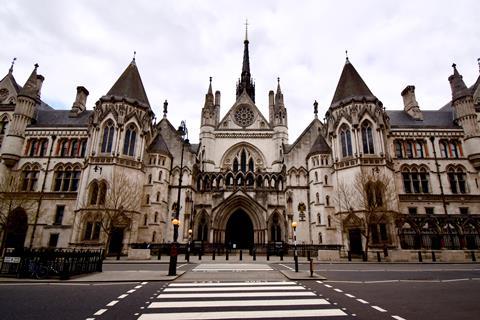An exasperated judge has criticised both parties and their lawyers in divorce proceedings for what he described as an ‘almost complete breakdown of constructive communication’.
In an extraordinary judgment handed down last week, Mr Justice Peel said the lack of cooperation between the parties and their lawyers in Crowther v Crowther & Ors was very apparent and as a result the legal costs were ‘enormous’.
The judge noted ‘with dismay’ that the divorcing husband and wife have made 41 statements between them and the case has stretched to 34 hearings. The bundles exceed 6,000 pages, Peel J explained, as the parties have argued ‘almost every imaginable issue, no matter how trivial’.
The total costs incurred come to £2.3m (split between £1.4m for the wife and around £900,000 for the husband. Given the couple’s net assets come to around £1.75m, the judge said his task now was to concentrate on how to divide the debts fairly.
As a last word, he added: ‘The only beneficiaries of this nihilistic litigation have been the specialist and high-quality lawyers. The main losers are probably the children who, quite apart from the emotional pain of seeing their parents involved in such bitter proceedings, will be deprived of monies which I am sure their parents would otherwise have wanted them to benefit from in due course.’

The court heard that the wife had entered into an agreement at the time of the pre-trial review with her lawyers that unless they received all outstanding fees, and their costs to the end of the trial, from a sum of £670,000 expected to be awarded to her, they would cease to act.
In the event, the money was not paid. A further ultimatum was issued when the wife applied for release of £500,000 from the sale of a marital asset, with her lawyers again saying they would cease to act without payment.
The judge added: ‘Given that W’s solicitors had already received from W in total (divorce, non-molestation, children, and financial remedy proceedings) costs exceeding £1m, and given that more than £1.8m remained in the joint account holding the proceeds of sale which would be available for distribution at trial, it might be thought rather unattractive for W’s solicitors to adopt this position.’
In the event, the judge ordered a release of £300,000 and her solicitors continued to act.
Peel J said each party thought the other side was ‘out to destroy’ them and the proceedings were ‘intensely acriminious’.
‘They, and their lawyers, have adopted a bitterly fought adversarial approach,’ he said. ‘I asked myself on a number of occasions whether the aggressive approach adopted by each side has achieved anything; it seems to me that it has led to vast costs and reduced scope for settlement.’



























27 Readers' comments